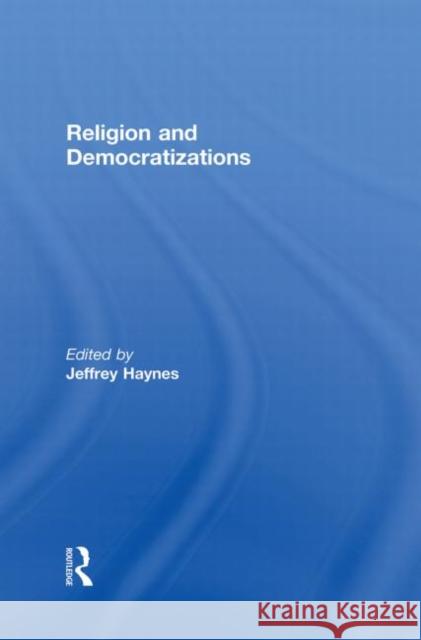Religion and Democratizations » książka
topmenu
Religion and Democratizations
ISBN-13: 9780415850308 / Angielski / Miękka / 2013 / 264 str.
Religion and Democratizations
ISBN-13: 9780415850308 / Angielski / Miękka / 2013 / 264 str.
cena 112,60
(netto: 107,24 VAT: 5%)
Najniższa cena z 30 dni: 95,66
(netto: 107,24 VAT: 5%)
Najniższa cena z 30 dni: 95,66
Termin realizacji zamówienia:
ok. 16-18 dni roboczych.
ok. 16-18 dni roboczych.
Darmowa dostawa!
This book examines key debates on religion and democratization from three main perspectives:
- Religious traditions have core elements which are more or less conducive to democratization and democracy;
- Religious traditions may be multi-vocal - but at any moment there may be dominant voices more or less receptive to and encouraging of democratization;
- Religious actors rarely if ever determine democratization outcomes. However, they may in various ways and with a range of outcomes be of significance for democratization.











